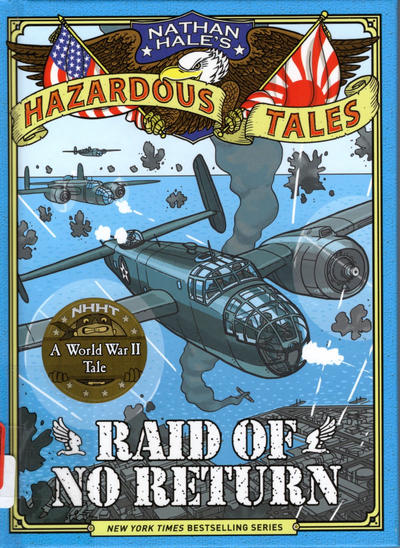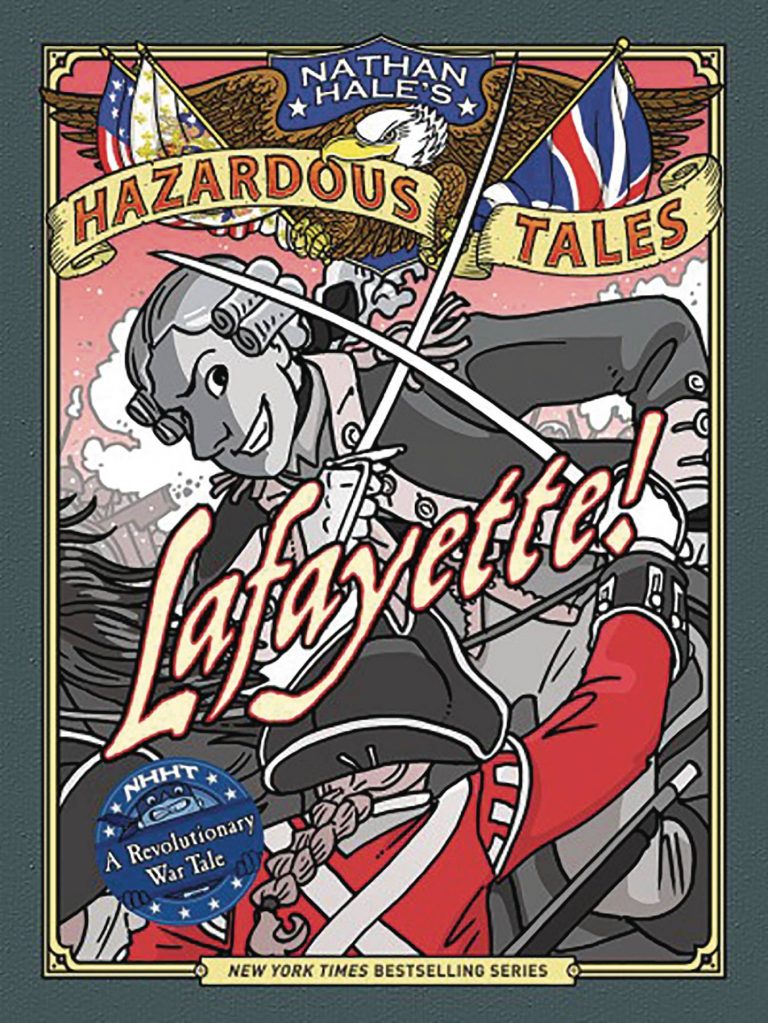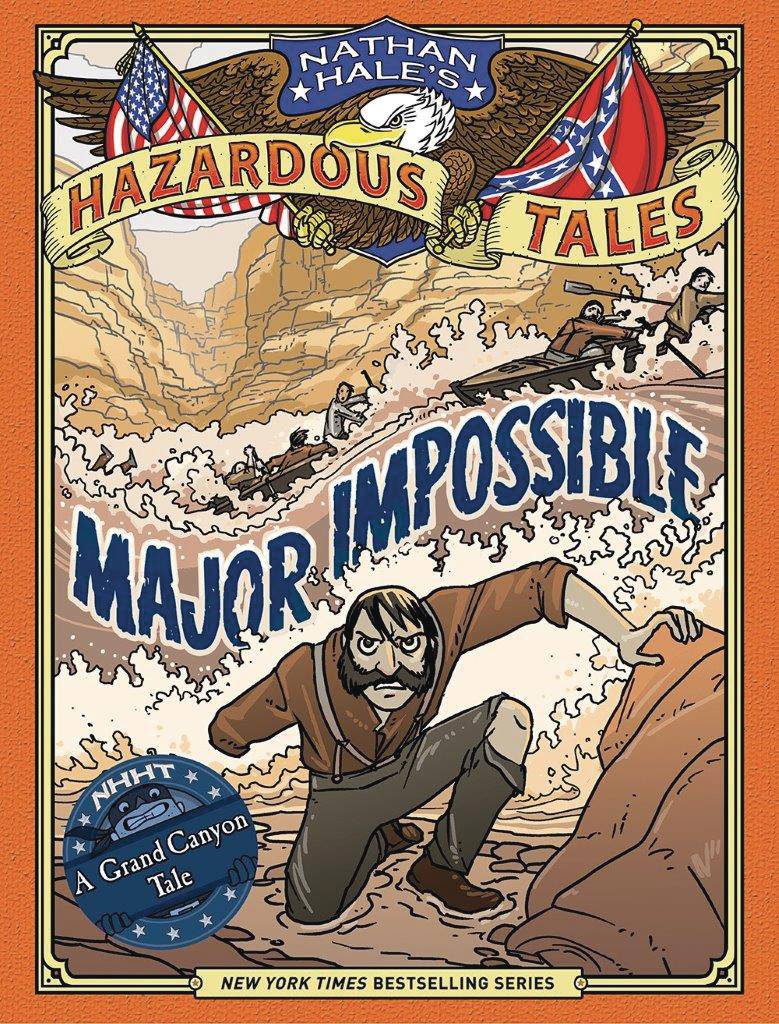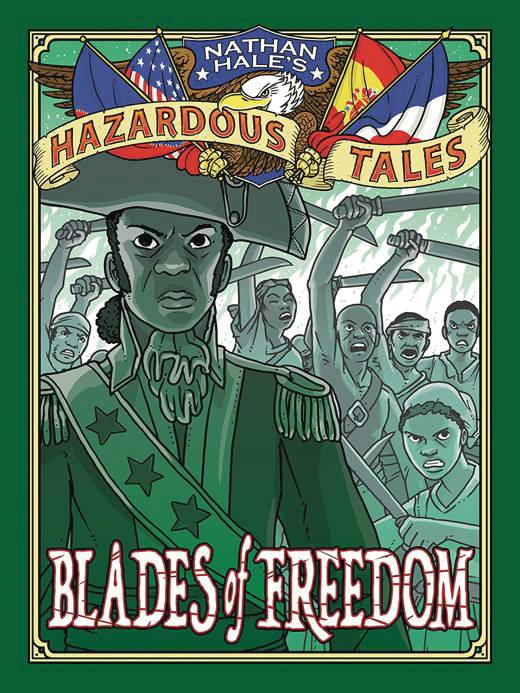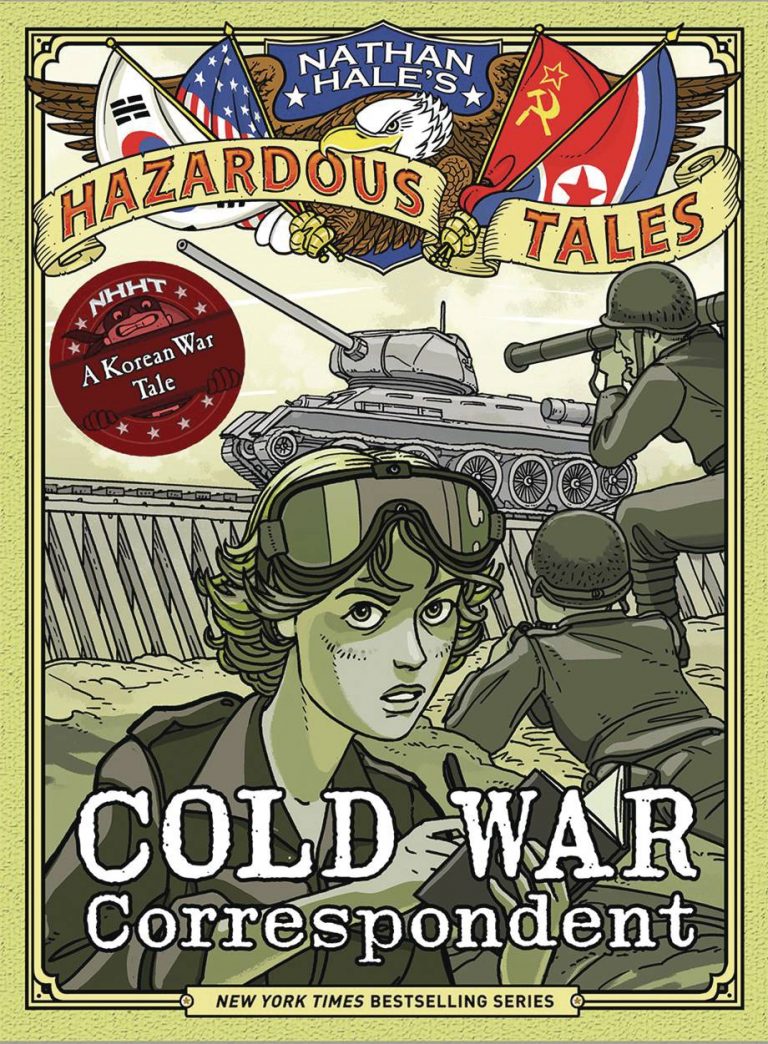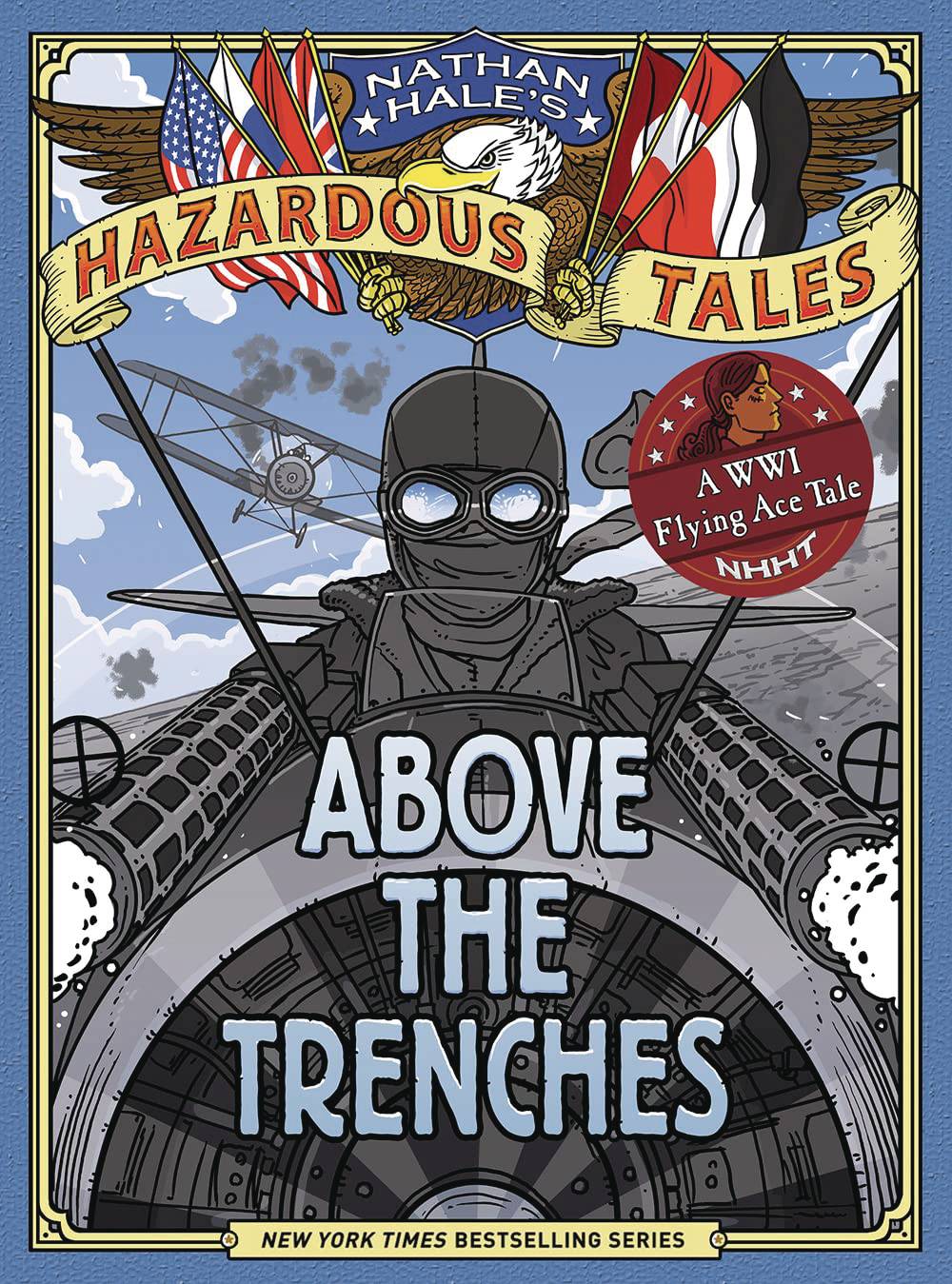Deserted once the other Central Powers surrender, Germany surrenders too and the Kaiser abdicates. Nathan Hale, the hangman, and the provost review the human cost of the war, and the changes it wrought. So somber is their mood that before going on to another history tale, they comfort themselves by sharing the story of Goldilocks and the three bears.; The nations spar for position as the Great War approaches.; Serbian nationalist Gavrilo Princip tries to impress the Black Hand by concocting an assassination conspiracy against Franz Ferdinand. Serbian military intelligence keeps the conspirators at arm's length, but supplies them with a few weapons and some sketchy training. Princip shoots and murders the Archduke and Archduchess.; Despite swamps, fog, and extensive fortifications, American troops fight their way across the Argonne Forest. The 77th division advances too far and is shelled by American artillery until carrier pigeon Cher Ami gets through with a message.; The Allies dig in and fight a Ypres as he Germans try to break through to the seaports. The Allied line holds but at terrible cost to the armies, and to the region in which the battles rage. Meanwhile Austria-Hungary captures the Serbia capital of Belgrade, but the Serbians turn half of the invading force into casualties.; French and Germans fight a gigantic battle at Verdun, using body armor, storm troopers, strong fortifications, heavy artillery, flame throwers, and poison gas.; Nathan Hale explains the origins of World War I to the provost and hangman.; Nationalism, militarism, and imperialism fuel the nations' rush into war.; It takes Zeppelins, giant cannon, and more than a week, but Ludendorff superintends the capture of the frontier fortresses.; Austria-Hungary, Germany, and Bulgaria attack Serbia simultaneously. Britain tries to intervene, but neutral Greece refuses passage. Serbia is crushed, and one-sixth of its people die.; The British launch a massive bombardment and infantry assault, supported by the first tanks. They lose 20,000 men on the first morning.; In order to shorten their invasion route, the Germans demand free passage through Belgium. Albert, King of the Belgians, resolves to fight, and orders the bridges to Germany blown up.; Although outnumbered, British troops hold the river line at Mons until forced to fall back by withdrawal of the neighboring French corps.; Although ill-equipped and low on ammunition, vast Russian forces push back smaller German formations. After Hindenburg and Ludendorff take command of the Germans, poor Russian radio discipline gives them access to the Russian plans. They use this information to crush the Russians in the Battle of Tannenberg.; German troops push themselves to the limit chasing the French army, which joins with French civilians in barricading the way to Paris. When a French pilot spots German forces exposing their flank, French commanders realize that this is the moment to strike.; Britain and France call in troops from their far-flung colonies as the Ottoman Empire joins the Central Powers, and Germany deploys its u-boat fleet.; British and Commonwealth troops invade the Ottoman Empire so as to break through to Russia. They get nowhere, and withdraw after the Ottomans inflict heavy losses.; Brusilov's Russian offensive against Austria-Hungary is a spectacular victory. The offensives there, at Verdun, and on the Somme each inflict more than a million casualties.; The United States tries to stay out of the war. But after Germany repeatedly sinks American ships, then attempts to connive with Mexico and dismember the U.S., Wilson demands and receives a declaration of war. The American army is unready, but Pershing takes token forces to Europe.; Both sides develop and employ bigger and better weapons, especially in the air.; American soldiers are so ill-equipped that they must use weaponry and helmets from their allies. But they win their first fight, at Cantigny, in short order.; Austria-Hungary demands extravagant concessions from Serbia, which accepts all but one of them. Despite the frantic maneuvers of other powers trying to maintain the shaky peace, Austria-Hungary declares war.; Fearing to be attacked while unready, most of the powers call up reserves and put their countries on a war footing.; Terrified by unsubstantiated reports of civilian snipers, panicky German soldiers burn Louvain, including its library with irreplaceable Medieval manuscripts.; Outnumbered French forces -- including the reserve garrison brought out from Paris in taxicabs -- hammer the German flank at the First Battle of the Marne, driving the invaders back forty miles. Both sides race frantically to dig parallel defensive trench lines.; As the armies improve their trench systems they also improve their uniforms and helmets, then try to break the stalemate with poison gas.; Nivelle attacks with a million men and 200 tanks, and the Germans scorch the earth as they retreat. While there are some successes, overall the offensive fails.; The British mine under German lines and detonate massive explosives, capturing a large haul of prisoners.; The Allies at length take Paaschedaele, which is destroyed in the process.; The Russian soldiers and people have both had enough. They overthrow the Tsar, set up a new government, and quit the war -- which frees German forces for the Western Front.; With the Germans spent once their spring offensive ends, the Allies begin their grand offensive all along the line, finally pushing the Germans back without ceasing.; The Research Babies revolt against Nathan Hale (the Book Tsar) and demand that they never again be required to research an entire war.; Great Britain has a small army, but when Germany invades Belgium Britain commits her massive fleet in response.; Serbia is much smaller than Austria-Hungary, but experienced Serbian soldiers inflict a major defeat on the invaders.; French officers send their troops (pantalons rouges and all) charging across open fields at the Germans, who butcher them with artillery.; King Albert floods the Belgian countryside to keep the Germans from Antwerp.; Taking advantage of Russian shortages in weapons and ammunition, German and Austro-Hungarian armies inflict a major defeat and drive the Russians back hundreds of miles.; A u-boat sinks the Lusitania, which is delivering ammunition to Britain. But the deaths of a thousand civilian passengers shock the world.; Italy declares war and attacks Austria-Hungary in the Alps, only to be beaten off with heavy losses.; The British and German fleets fight the war's biggest naval battle, off Jutland.; As the Allies mount a coordinated offensive on three fronts, Germany elevates Hindenburg and Ludendorff to supreme command.; A German surprise attack meets success in the quiet sector of the Chemin-des-Dames. An American counterattack takes the Germans by surprise and ends the advance.; After a 26-day struggle, U.S Marines clear Belleau Wood.; Foch wants American units to support the British and French troops, but Pershing insists that they will act under his own independent command.


![Nathan Hale's Hazardous Tales #[1] (2012)](https://covrprice.com/wp-content/uploads/2012/07/39760.jpg)
![Nathan Hale's Hazardous Tales #[2] (2012)](https://covrprice.com/wp-content/uploads/2012/07/39768.jpg)
![Nathan Hale's Hazardous Tales #[3] (2013)](https://covrprice.com/wp-content/uploads/2013/08/47449.jpg)
![Nathan Hale's Hazardous Tales #[4] (2014)](https://covrprice.com/wp-content/uploads/2014/05/59624.jpg)
![Nathan Hale's Hazardous Tales #[5] (2015)](https://covrprice.com/wp-content/uploads/2015/04/72462.jpg)
![Nathan Hale's Hazardous Tales #[6] (2016)](https://covrprice.com/wp-content/uploads/2016/03/91203.jpg)
